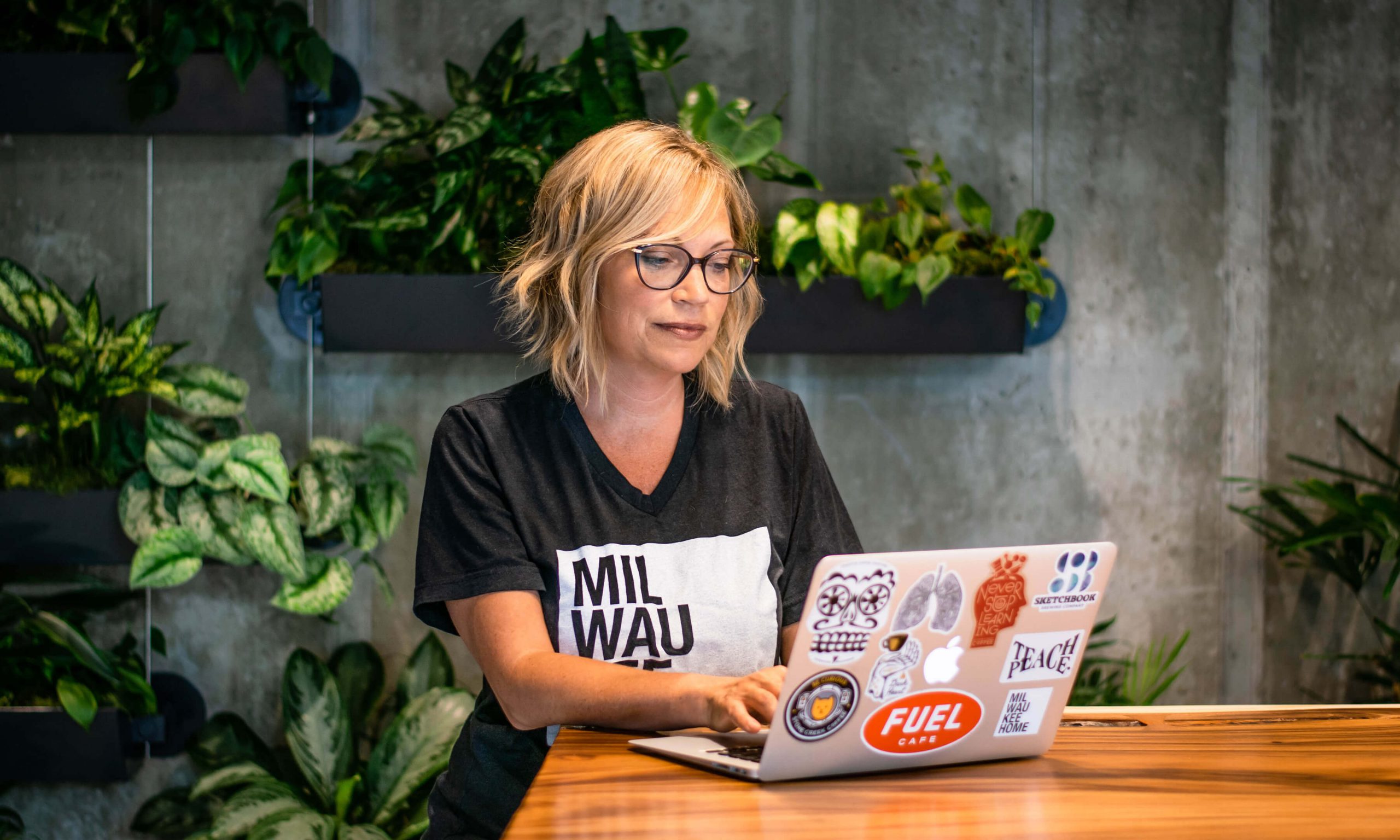
Stories are compasses and architecture; we navigate by them, we build our sanctuaries and our prisons out of them, and to be without a story is to be lost in the vastness of a world that spreads in all directions like arctic tundra or sea ice. To love someone is to put yourself in their place, we say, which is to put yourself in their story, or figure out how to tell yourself their story. – Rebecca Solnit in The Faraway Nearby
Like every other Concordian, I felt the same fear, confusion, and anxiety in the days leading up to our exodus from campus as I grappled with the reality that I would likely not return to a physical classroom for months. As a teacher, I’ve learned that flexibility is essential to good instruction; however, none of my years of experience or training had prepared me for this. Canceling my eagerly anticipated New Orleans jazz adventure, hunting for a few spared rolls of toilet paper, learning the ins and outs of Zoom—these frantic actions consumed my spring break. Those days, where every second felt like an eternity, when each new headline announced another catastrophic development, I struggled to imagine how my Introduction to Writing course, filled with first-year students just hitting their college stride, could offer its participants a relevant learning experience. I could barely lift my own head off the pillow or shake the fog that had enveloped my brain. I couldn’t imagine how my students would be able to settle into their new “old” environments and complete a successful spring semester.
In the midst of the trauma, I felt comfort in talking to others—a formerly simple act that, due to increased social distancing requirements, became complicated and precious. Through the stories I exchanged with my family, friends, colleagues, and students, I began to see beyond my immediate dread as I shared with others what it means to be alive during this particular moment in history. Stories have the power to connect and sustain us.
I listened to my students’ incredible experiences as they traveled to homes scattered across the globe, as they carried out essential jobs in their communities, as they set up their new study spaces in their childhood bedrooms, and as they tutored their younger siblings. We were all tired of thinking about the pandemic, and yet it was all we could think about. It was all we could talk about. Rather than try to redirect our attention away from what was increasing consuming all of our lives, I wanted us to use the research skills we had been practicing all semester to explore some of the ways our worlds were shifting. I asked students to become story collectors and documentarians, to bear witness to this unprecedented historical moment. No longer would they be reading sources written by others, they would become the authors, editors, and curators of texts that will reflect the individual stories of people living through the COVID-19 pandemic. To house these projects, we created the Chronicles of a Contagion digital archive. As a co-participant in the project, I started a podcast with the same name, featuring interviews with students, teachers, and staff in the CUW community.
Listening to these stories has given us new opportunities to hear each other and to practice a kind of empathy that is possible through these interactions. Story exchanges, such as we’ve done this semester for our archive, have been described as providing a form of narrative “medicine.” Literary activist Colum McCann explains, “Stories enter the bloodstream. Stories can wound us, yes, but they are more likely to heal. We re-story ourselves in the hope that we might be able to restore ourselves.” It is this hope that has guided our work together this semester.
Stephanie Guedet “Chronicles of a Contagion”
CUW Associate Professor Stephanie Guedet interviews her students and colleagues to see how their lives have changed in the wake of a global pandemic.
Yushin Kim “KOVID-19: The Coronavirus in Korea”
International student Yushin Kim makes his way across the globe to experience COVID-19 in his home country of South Korea.
Jenna Chaussee “Quaran-team: College Volleyball Edition”
In this digital scrapbook, first-year CUW volleyball player Jenna documents her experiences at home as part of a “quaran-team.”
Isabelle Shields “Alaska Vlog”
In this project, Izzy takes us on virtual tours around her new hometown of Juneau, Alaska to see how COVID-19 has impacted the tourist business.
Mattson Wick “Consequences of COVID-19”
In this podcast, Mattson interviews people from various professions to understand the effects of the pandemic on their lives.
Teddy Gullickson “The COVID-19 Family”
Teddy Gullickson interviews his family members to see how the virus and resulting safer-at-home orders impacts the American family experience.
Freeman Jackson “College and COVID-19: The Unwanted Effects”
In a series of compelling short profiles, Freeman captures the experiences of college students whose semester was cut short by COVID-19.
—
If this story has inspired you, why not explore how you can help further Concordia's mission through giving.